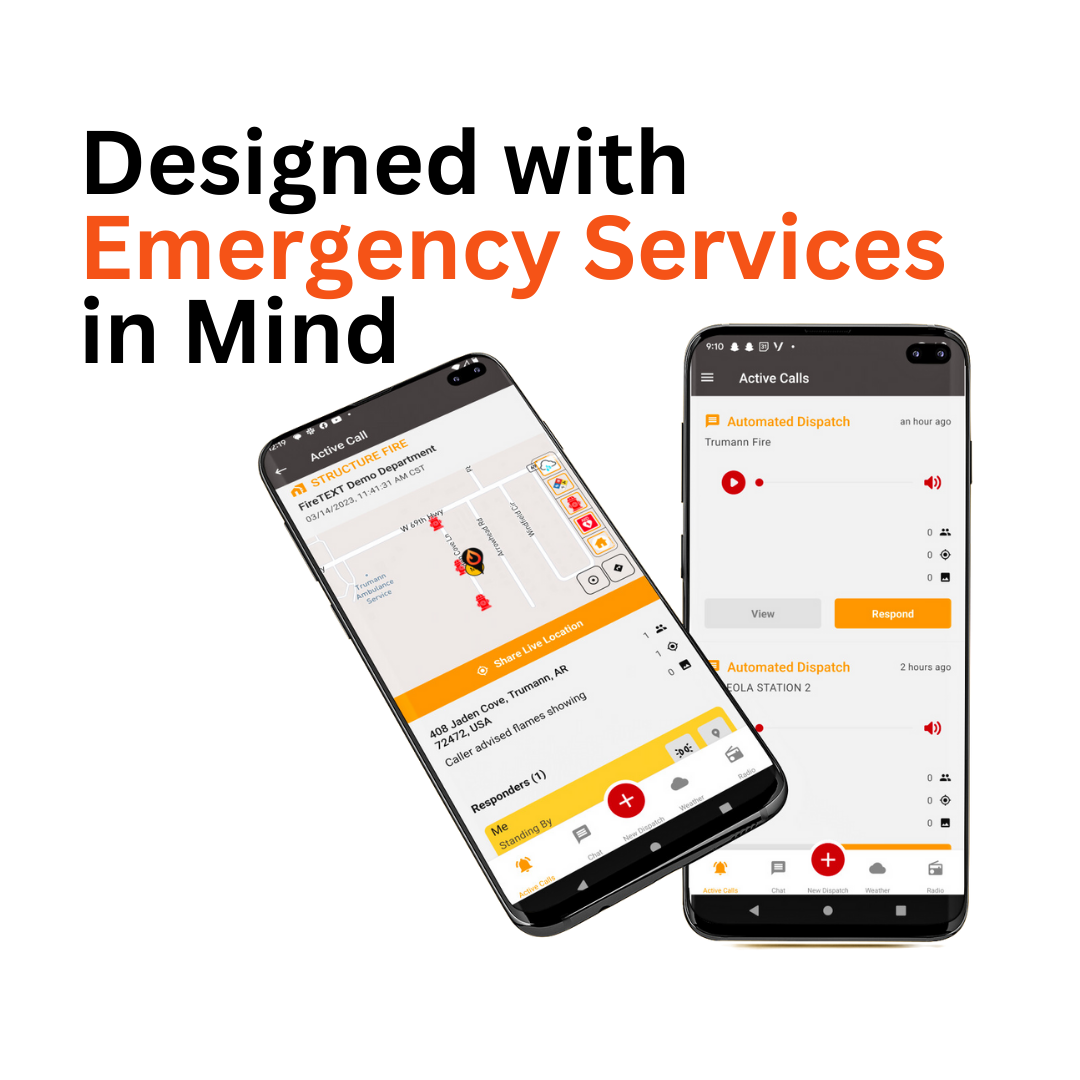Why It’s Critical for Your Department's Success

Effective communication is the backbone of any successful fire department. In an emergency, seconds matter, and clear, fast, and reliable communication can mean the difference between life and death. Whether responding to a fire, a medical emergency, or a rescue situation, having a streamlined communication system ensures that your team can act quickly and decisively. Fire departments are increasingly realizing the importance of modernizing their communication systems to ensure they are prepared for any scenario.
Why Communication Matters in Fire Service:
- Faster Response Times:
One of the most critical aspects of emergency response is time. Traditional paging systems or manual callouts can be delayed or missed entirely due to technical issues, signal interference, or human error. With modern solutions like FireTEXT®, real-time notifications ensure that first responders are alerted immediately, allowing them to act faster and save precious minutes—minutes that could mean the difference between life and death. - Improved Coordination:
In high-stress emergency situations, poor communication can lead to confusion, duplicated efforts, or worse, overlooked emergencies. Imagine a scenario where a team member misses an update on the location of a hydrant or doesn’t receive word of a backup request. Miscommunication can result in lost time, inefficient resource allocation, or even accidents. With a comprehensive communication system in place, everyone is on the same page, reducing the risk of these critical errors. - Preventing Communication Failures:
Communication breakdowns can happen for a variety of reasons—unreliable technology, human error, or simply poor network coverage. For instance, relying solely on outdated radios or pagers can leave teams vulnerable to lost messages, incomplete transmissions, or reception issues in rural or remote areas. With FireTEXT®, however, multiple communication channels such as app-based notifications, SMS, and automatic voice dispatches work together to ensure no message is lost. FireTEXT® also allows for manual dispatching and backup communication methods in the event of a main system failure. - Safety of First Responders:
Effective communication is not only about improving response times; it’s also about ensuring the safety of first responders. Keeping communication clear and organized ensures that everyone is aware of potential hazards on-site. For example, being able to send real-time updates about changes in fire conditions or road closures to your entire team minimizes risks in these dangerous environments. Clear instructions and real-time feedback can help keep firefighters safer during operations. - Public Safety:
Communication extends beyond internal teams. Fire departments also need reliable ways to communicate with other agencies and the public. Whether it’s coordinating with law enforcement, emergency medical services, or even broadcasting public safety messages during an emergency, clear communication can protect communities. FireTEXT®’s group messaging and real-time updates keep everyone informed, improving community safety overall.
How Communication Can Fail—and How FireTEXT® Can Help
Communication failures can arise from several factors:
- Outdated Equipment: Traditional pagers and radios often have limited range, poor reception, and are prone to signal interference, especially in remote or rural areas.
- Single-Channel Reliance: Relying on one communication method means there is no backup when that method fails, whether it’s due to network outages, equipment malfunctions, or human error.
- Missed Alerts: In the chaos of responding to an emergency, vital alerts can be missed if they don’t reach the entire team at once or aren’t prioritized properly.
With FireTEXT®, these risks are significantly reduced. Our platform integrates multiple channels—app notifications, SMS, phone calls, and even automated voice dispatching—to ensure messages are sent through multiple layers of communication. If one channel fails, the others act as a safety net. Additionally, FireTEXT®’s system is designed to provide redundancy, so if a dispatcher cannot send alerts through the main system, they can do so manually from a mobile app or computer.
Our service is also cloud-based, meaning even if local systems fail, your communication network stays active. FireTEXT® works seamlessly with your existing protocols, offering solutions like CAD integration, weather alerts, mapping tools, and customizable ringtones for specific notifications. No matter where your team is, FireTEXT® keeps them connected and informed.
Key Features That Will Transform Your Fire Department’s Communication
- Instant Alerts: Quickly notify your entire safety team in case of an emergency, whether it’s fire-related, medical, or other critical situations.
- Group Messaging: Communicate with specific teams or departments to ensure the right people are alerted without overwhelming those who don’t need to be.
- Real-Time Updates: Keep your team informed with real-time status updates to ensure efficient coordination during evolving situations.
- Customizable Alerts: Set up custom tones and notifications to distinguish between different types of alerts, ensuring critical messages aren’t missed.
- Reliable App Access: With the FireTEXT® app, you can ensure that notifications are delivered via multiple channels, including in-app alerts, SMS, or voice messages, to keep your team connected.
How FireTEXT® Can Help
At FireTEXT®, we understand the unique communication needs of fire departments. With over 50 years of combined experience in emergency services, our team has designed a platform that provides real-time alerts, reliable notifications, and seamless integration into your existing systems. Whether you need help coordinating between stations, sending emergency alerts, or updating personnel in the field, FireTEXT® ensures that your team is always connected and ready to respond.
